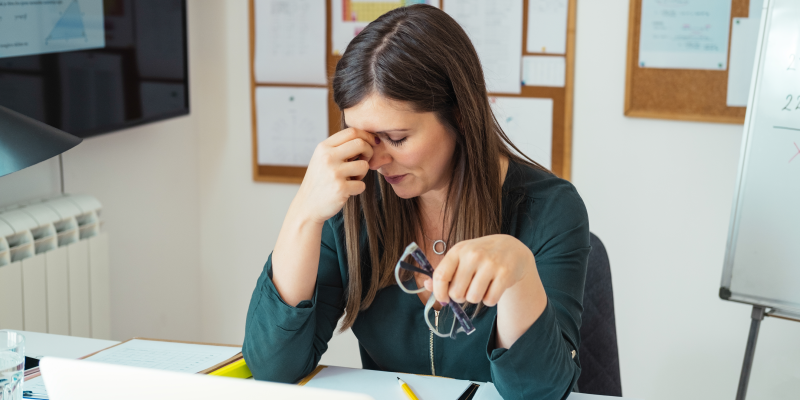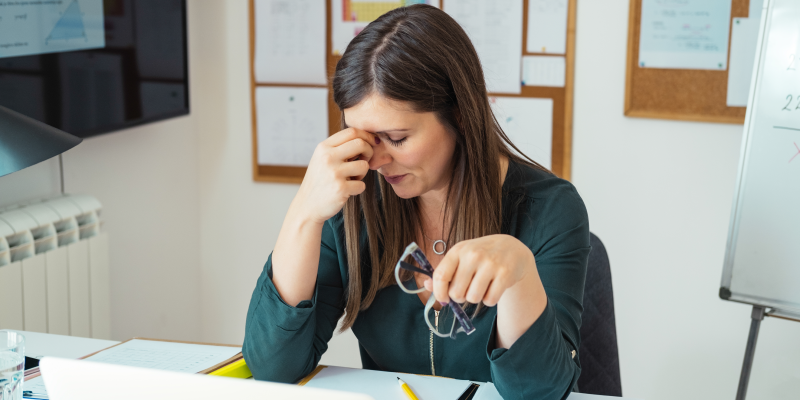Alleviating the Stress of Finding a PhD Advisor
In the US, physics students rarely enter graduate school knowing what specific problem they will study for their PhD or who will supervise them. Rather, sometime during their first year, they will have to search out both while also taking a full docket of high-level coursework. According to graduate-student Mike Verostek of the University of Rochester and the Rochester Institute of Technology in New York, at many institutions this search process occurs with little or no guidance. “It’s just up to the student to figure it out,” he says.
Now Verostek and his colleagues show that the haphazard nature of the process can negatively impact the well-being of physics students, particularly those who struggle to immediately find a group [1]. To eliminate uncertainty, the team advocates for a change in the processes by which students find advisors. “Students need more guidance and clearer expectations, and universities need to build formal structures into their programs to support students in finding a project and advisor,” Verostek says. “Then they will all succeed.”
In the study, Verostek and his colleagues interviewed 20 first- and second-year-physics graduate students. The students were asked a variety of questions that related to their experience in finding a research group: How easy did they find the process? What guidance were they given? Did they feel that they had enough information to make an informed decision? Verostek and his colleagues also collected data on the students’ research experience prior to enrolling in graduate school and on their sense of belonging as PhD students.
The students all described finding a research group as a significant decision, noting that they felt choosing the right group would impact both their experiences as graduate students and their careers thereafter. “Your relationship with your [advisor] can make or break your career,” said one student. As another student noted, the advisor would effectively oversee their lives for the next four or five years. And if it didn’t work out, the only option might be to drop out. As a result, the students experienced anxiety about getting the decision right.
Despite the perceived importance of the decision, few of the students felt prepared to make it, citing little guidance from their professors or from their physics department. Students who struggled to find the right match expressed feelings of isolation or of worry that they were somehow failing before they had even started. Meanwhile, those who quickly found a group reported an increased sense of belonging.
The lack of support can lead students to pick a supervisor who is a poor fit—which studies, including the new one, have shown is particularly a problem for minority students. Verostek and his colleagues found that women and nonbinary students reported reduced research opportunities, as they perceived a lack of an inclusive culture in some of the research groups.
The situation is frustrating for those who strive for equity in the sciences, says Michelle Maher, an education researcher at the University of Missouri who has studied the PhD advisor selection process for biomedical students. “It shouldn’t be so difficult for students to navigate something that should be straightforward.” Jackie Chini, an education researcher at the University of Central Florida, agrees. “We cannot continue to accept this as the status quo in physics,” she says.
Being in the wrong group is known to cause students to feel like a failure and leave their PhD programs, which is what initially happened to Verostek. After struggling to find a PhD supervisor during his first year, Verostek ended up in a group that he quickly realized wasn’t the right fit. Shortly thereafter he left. “It was a really hard decision,” he says. “I was like, what am I going to do now?”
Verostek was later able to start over in a new group. But not everyone is so lucky. “There is an extremely high attrition rate for physics students leaving graduate programs,” says Benjamin Zwickl, a physics-education researcher at Rochester Institute of Technology who worked on the study. One of the reasons that students may abandon physics is the difficulty of getting settled into a group, he says.
Both Verostek and Zwickl think that some of the problem could be alleviated relatively simply—by providing information on the process through easily accessible resources, such as department websites or graduate handbooks. In an analysis of the contents of graduate-student handbooks from 13 institutions, the team found that none provided guidance on how to search for and secure a supervisor. “There was nothing about when the process should start or how it should be carried out,” Zwickl says. “Changing that is the low-hanging fruit.”
Another option is to more consciously expose students to potential advisors or to let them rotate through various labs on a trial basis. This lab-rotation method often occurs in biomedical courses and has been shown by Maher and her colleagues to make the process of finding an advisor more structured [2]. The students she followed were required to rotate through three labs during their first year, with the goal of picking one to stay in. “It didn’t necessarily make the choice easier, but the process was predictable.”
Zwickl would like to see lab rotations added to first-year-physics graduate courses. “Not all students have had access to research opportunities as undergraduates,” he says. A short-term lab experience would give these students a better sense about what they would be doing in different groups. Zwickl notes that visiting labs and meeting experienced graduate students would also foster community and belonging, both of which are key for a positive PhD journey.
–Katherine Wright
Katherine Wright is the Deputy Editor of Physics Magazine.
References
- M. Verostek et al., “Physics Ph.D. student perspectives on the importance and difficulty of finding a research group,” Phys. Rev. Phys. Educ. Res. 20, 010136 (2024).
- M. A. Maher et al., “Finding a fit: Biological science doctoral students’ selection of a principal investigator and research laboratory,” LSE 19 (2020).





